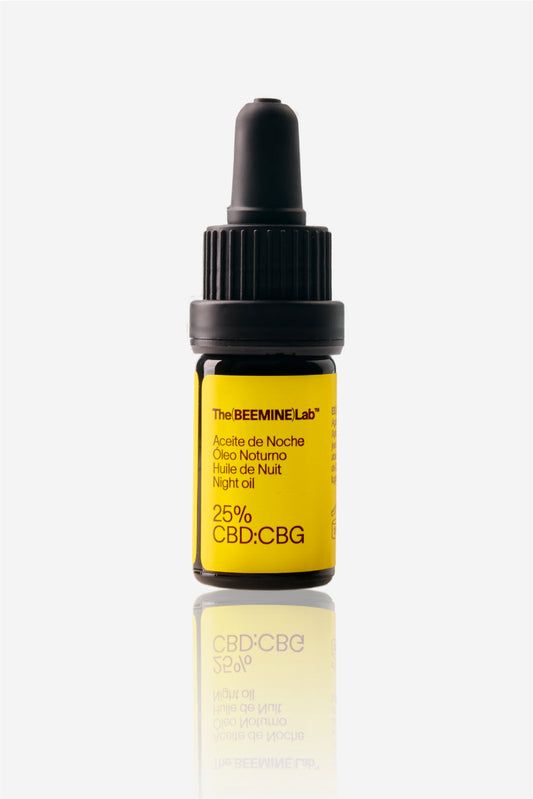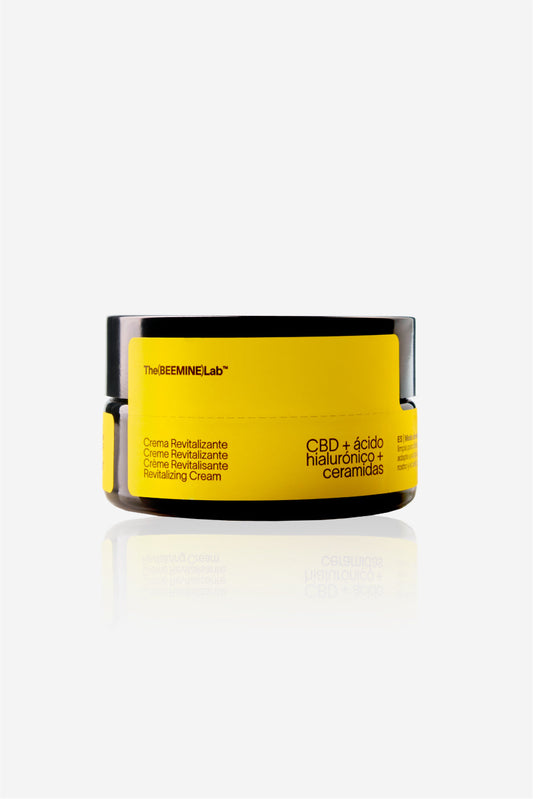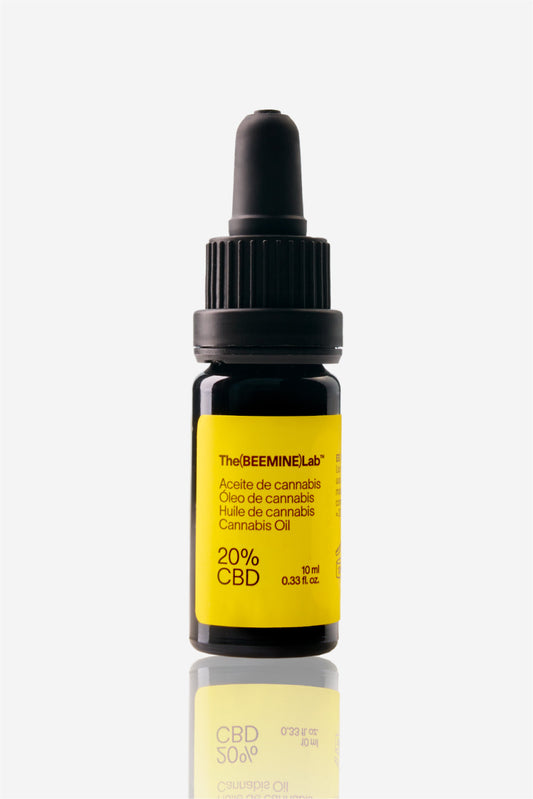FULL INTERVIEW
Anastasia Bengoechea aka SpaghettiMonster, illustrator, comedian and communicator . Her work is characterized by being free of taboos. There is no better guest than her to talk about access to information and how we can responsibly use such a complex plant.HOW DOES IT FEEL TO USE CBD?
“You don't feel anything on a... psychotropic level, that changes your way of seeing things or that you are upset. But you just feel very relaxed and very good, it's like making you feel something different, it makes you feel like yourself but super calm” - Anastasia BengoecheaThe main difference between CBD and the direct associations we make with the whole plant and the famous THC is that Cannabidiol does not have psychotropic or, more properly speaking, psychotomimetic effects, in other words: It does not get you high , it does not induce states of psychosis, nor does it cause hallucinations, changes in perception or changes in mood. ( 1 ) But that does not mean that it does not act on the brain , so it is not entirely correct to say that it is not psychoactive, since it does influence the brain at an anxiolytic level, promoting that feeling of calm and peace that Anastasia describes in her interview. ( 2 )
View this post on Instagram
FROM CANNABIS ABUSE TO RESPONSIBLE USE
“When I was younger, a typical teenage period, I did abuse it . I think it's common at that time to do things thoughtlessly. Then I stopped using it and then , when I was older, more mature and through friends and others who told me about CBD, I started using it . I don't have any kind of taboo either, so I informed myself, I started studying how it was going and I started using it. And the truth is that I'm very happy.”The recurrent use of THC (especially if we mix it with tobacco) can have negative consequences, since it favors reward cycles, leading to addiction and an abusive use of the plant that increases its side effects . However, compared to other substances, there is no risk of death from overdose and both Tetrahydrocannabinol and Cannabidiol are currently being studied to reduce addiction to other substances. (3) (4)(5)(6)(7)(8) It should be noted that Cannabidiol, according to the WHO report , has no addictive effects and is well tolerated in high doses in our body without risk of poisoning.
CAN YOU USE CANNABIS AND BE SUCCESSFUL?
“I am a person who takes great care of himself , who exercises, who eats super healthy, who has a job that suits me very well, and who tries to work on being well in all aspects of my life. And this is a bit of what I use cannabis for .”The lack of productivity and cognitive impairment associated with some of the side effects of recreational cannabis abuse can make us lose perspective on what cannabis can do for our well-being: According to multiple studies, Cannabidiol can be an ally to promote states of concentration thanks to its anxiolytic effects . (9) Thank you very much, Anastasia, for sharing your story with us, which teaches us that we can learn to use the plant responsibly and that, in fact, the well-being it brings us can help us, in our daily lives, to achieve what we set out to do. Bibliography:
- Annex 1- Extract from the Report of the 41st Expert Committee on Drug Dependence: Cannabis and cannabis-related substances. 2019
- “Can CBD Help with Anxiety?” American Association of Anxiety. 2019
- Early Phase in the Development of Cannabidiol as a Treatment for Addiction: Opioid Relapse Takes Initial Center Stage. Yasmin L. Hurd, Michelle Yoon, Alex F. Manini, Stephanie Hernandez, Ruben Olmedo, Maria Ostman & Didier Jutras-Aswad. Neurotherapeutics volume 12, pages807–815 (2015)
- Prud'homme M, Cata R, Jutras-Aswad D. Cannabidiol as an Intervention for Addictive Behaviors: A Systematic Review of the Evidence . Subst Abuse . 2015;9:33-38. Published 2015 May 21. doi:10.4137/SART.S25081
- (This is a 2015 review, they treat addictions to: cocaine, opiates, stimulants, tobacco and cannabis)
- Shannon S, Opila-Lehman J. Cannabidiol Oil for Decreasing Addictive Use of Marijuana: A Case Report . Integr Med (Encinitas) . 2015;14(6):31-35.
- Hurd YL, Yoon M, Manini AF, Hernandez S, Olmedo R, Ostman M, Jutras-Aswad D. Early Phase in the Development of Cannabidiol as a Treatment for Addiction: Opioid Relapse Takes Initial Center Stage . Neurotherapeutics. 2015 Oct;12(4):807-15. doi:10.1007/s13311-015-0373-7. PMID: 26269227; PMCID: PMC4604178.
- Cannabidiol as a treatment for craving and relapse in individuals with cocaine use disorder: a randomized placebo-controlled trial . Clinical Trial, 19, January, 2021. ClinicalTrials.gov (NCT02559167).
- Potential Effects of Cannabidiol as a Wake-Promoting Agent. Eric Murillo-Rodriguez, Andrea Sarro-Ramirez, Daniel Sanchez, Stephanie Mijangos-Moreno, Alma Tejeda-Padron, Alwin Poot-Ake, Khalil Guzman, Elda Pacheco-Pantoja, Oscar Arias- Carrion. Curr Neuropharmacol. 2014 May; 12(3): 269–272. Published online 2014 May. doi: 10.2174/1570159X11666131204235805







